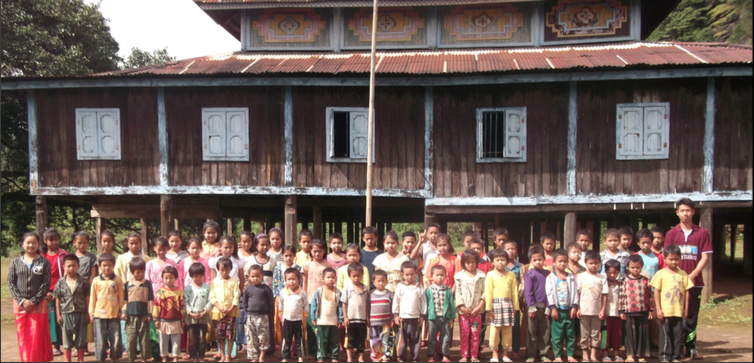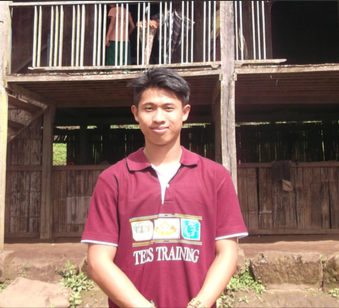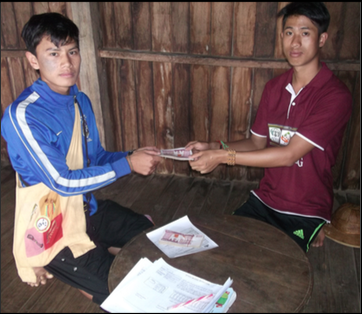Initially formed during the Pagan Kingdom before falling to Mongol invaders after 1287, the Shan State in Myanmar’s North-East has suffered from centuries of conflict between several ethnic groups and armies. Today, conflict continues between the RCSS ‘Restorative Council of Shan State’ and Burmese Army impacting the local education system and accessibility to schools. With a new cease fire agreement, villages like Wan Kein Shai in remote Mone Kai Township in Southern Shan State has recently opened their first school based in the local monastery. Comprising of 52 households, the villages roughly 55 school aged children now primarily attend the newly opened school.

In the past, children were unable to attend school in this region instead assisting their families in agricultural practices. 1-2 out of every 50 children were able to attend schools in urban areas if their parents were financially secure enough to afford it. In addition due to the distance of available schools to the remote villages, parents would also need to factor in costs associated with housing, food and living expenses often worried for their children’s security.
The CASE ‘Conflict Area Support for Education’ project funded and supported by ADRA Germany and ECHO implemented in the Kayah, Kayin, Shan and Kachin States, aims to provide assistance to schools in conflict areas by providing teaching and learning materials and extend teachers educational services.
20 year old teacher Sai Say Han received TEES training as apart of the CASE project going on to start Wan Kein Shai villages first school on the 5th September 2016 with the assistance of a local education officer. As apart of his TEES training, Sai Say Han learnt about general teaching skills, community organization skills, roles and responsibilities, and different learning styles to name a few. In his first week, Sai Say Han was able to establish a school committee to enhance collaboration between the village and the school.
As a part of the project, Sai Say Han receives a small stipend to cover living expenses and the school has received learning materials for the students. Sai Say Han stated, “I am very happy to see that not only the school-age children can now go to school but also they have pencils, books and other school materials as basics learning materials for them to learn”.
Sai Say Han went on to say, “the community members provide a bag of rice monthly and accommodation at one village house. They also arrange a rotating schedule to accompany me if I am traveling and I feel very well taken care of by them”
*Reported By: RISE
Written By: Emma McCrow, Communications Officer
Photo: © 2016 RISE







